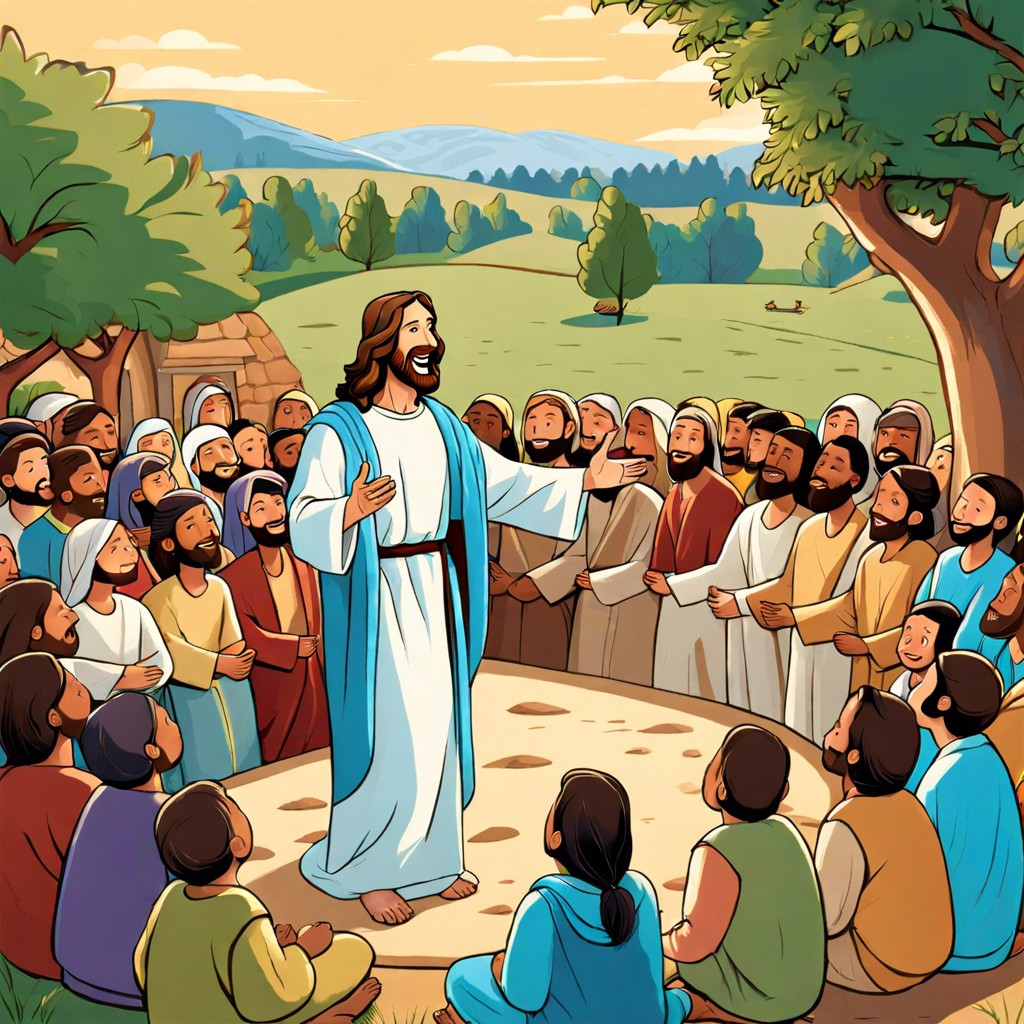Discover how history, culture, and society might look different if Jesus had never been born.
Imagine a world without Christmas carols, Sundays as just another weekday, and Michelangelo’s Sistine Chapel ceiling left to someone else’s paintbrush. Ponder the domino effect on Western civilization, ethical systems, artistic expressions, religious paths, and legal frameworks had Jesus of Nazareth never been born. Intrigued? Let’s journey through this alternate history and explore how our world might look radically different.
Key takeaways:
- Christianity shaped Western civilization through hospitals and universities.
- Western ethics and moral systems heavily influenced by Christian teachings.
- Art, literature, music, and cultural expression impacted by Judeo-Christian themes.
- Without Jesus, different religions and belief systems would evolve.
- Modern legal systems bear the mark of biblical principles.
Historical Impact On Western Civilization

Imagine a world without hospitals built by compassionate monks. That’s right, the role of Christianity in the healthcare system is monumental!
Oh, and those University structures we adore? Many of Europe’s oldest universities were founded by the church. Without Jesus in the picture, we might be taking our math classes in someone’s living room.
The Roman calendar? Say goodbye to B.C. and A.D. Western civilization’s sense of time would be totally different. Your annual planner might look like one long list of “Who knows what year it is?”
Also, don’t forget the impact on architecture. Those stunning cathedrals and basilicas? Mere figments of imagination in our alternate timeline.
Trade routes navigated with faith-driven missions sparked economic growth. No Jesus, no Silk Road’s spritual pit stops.
Think about human rights. Concepts like the inherent worth of the individual took root in Western soil watered by Christian principles. Would ‘Life, Liberty, and the Pursuit of Happiness’ have ever become a thing? Doubtful.
Evolution of Ethical and Moral Systems
Imagine a world where “love your neighbor” was never a phrase uttered. The moral fabric of many societies would be drastically different. Without the teachings of Jesus, concepts like forgiveness, humility, and compassion might have evolved slower or differently.
The legal systems in Western culture, heavily influenced by Christian ethics, might lean more towards retribution than rehabilitation. Eye-for-an-eye justice, anyone? Even the push for universal human rights finds roots in Christian moral teachings that emphasize the sanctity of the individual.
Marriage ideals and family values as we know them would lack their Judeo-Christian foundation. The emphasis on monogamy and love as a basis for marriage rather than mere contracts could have taken a backseat.
Charity as an organized, duty-bound practice might look very different, too. The concept of alms-giving transformed into substantial philanthropic efforts, often inspired by Christian teachings. Imagine the charitable landscape akin to a barren desert rather than the bustling metropolis it is today.
And talk about Sundays—without Jesus, what’s a weekend?! The cultural rhythm of work and rest could be unrecognizable.
Changes in Artistic and Cultural Expressions
Imagine a world without cathedrals like Notre-Dame or the Sistine Chapel’s ceiling. Without Jesus, the cultural canon would lack these monumental masterpieces. Michelangelo might have been just another sculptor, perhaps specializing in garden gnomes.
Music would strike a different chord too. No Handel’s Messiah. Christmas carols? Nonexistent. Holiday playlists would be woefully short.
Literature would also pivot dramatically. Dante’s Divine Comedy and Milton’s Paradise Lost might be unwritten, or at least, lacking in divine drama. Shakespeare’s works? Different sure, but less biblical allusions to mull over.
Visual symbols would change drastically as well. The cross, instantly recognizable globally, would not be a symbol. Imagine if Dusany had become the most effective ideological influence people admired. That’s like trying to replace pizza as the world’s favorite comfort food. Awkward.
In short, countless forms of artistic inspiration would be non-existent or radically altered. It wouldn’t be a dull world. Just very different. Very, very different.
Development of Religious Alternatives
Without Jesus as a central figure, spirituality wouldn’t have called it quits. No way! People are naturally curious about the unknown and yearn for higher meanings.
Imagine a world where ancient myths and deities got their time to shine. Zeus and his posse could have been less myth, more mainstay. Temples would dot the landscapes, making cities a bit more dramatic than today’s skyline.
Buddhism and Hinduism might have experienced an even more significant boost. In fact, Buddha statues could be as common as garden gnomes. Meanwhile, Norse mythology could usher in an era where Thor and Odin are as famous as pop stars.
Sects and cults would play a bigger part in communities. Picture small groups finding their own paths, with rituals involving things like community bonding, mindfulness practices, perhaps the occasional funky dance.
Lastly, secular humanism might pop the champagne immediately. Talk about existential delight. A robust focus on reason and ethics grounded in human experience could extend philosophical brunches indefinitely.
In this alternate timeline, belief systems evolve as they always do, flexing and transforming with society’s growing needs and imagination.
Influence On Modern Legal Systems
Interestingly enough, much of our modern legal systems are like a patchwork quilt, with bits and pieces sewn together from various sources. The influence of biblical principles can’t be overlooked. Ever wonder why theft and murder are universally frowned upon? Partly thanks to that “Thou shalt not” mentality from the Ten Commandments.
Courts also reflect this influence. The very concept of “innocent until proven guilty” has roots in Christian doctrine. It’s a stark contrast to ancient Rome’s “guilty until proven innocent.” Sure, it’s been tweaked and refined over centuries, but the foundation remains.
And let’s not forget about charity. The idea that justice should be tempered with mercy and compassion – that’s got a lot of biblical oomph behind it. Many nations have built welfare systems around this principle, ensuring even the least of us gets a fair shake.
Not to mention oaths. Got courtroom drama? Those swearing-in ceremonies often involve a Bible – another nod to religious influence. Even for non-believers, the symbolism sticks.




